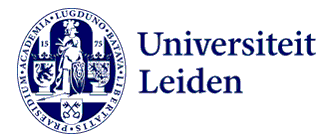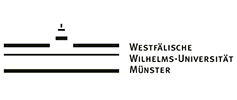Judicial Independence vis-à-vis Judicial Populism: the Case of Ulayat Rights and Educational Rights
Abstract
Keywords
Full Text:
PDFReferences
Alon, Harel. "Courts in a Populist World." VerfBlog, 27 April 2017. https://verfassungsblog.de/courts-in-a-populist-world/. DOI: https://dx.doi.org/10.17176/20170428-104853.
Basic Principles on the Independence of the Judiciary Adopted by the Seventh United Nations
Congress on the Prevention of Crime and the Treatment of Offenders held at Milan from 26 August to 6 September 1985 and endorsed by General Assembly resolutions 40/32 of 29 November 1985 and 40/146 of 13 December 1985.
Daintith, Terence. "The Constitutional Protection of Economic Rights." I.CON 2, no. 1 (2004).
Eby Hara, Abubakar. "Populism in Indonesia and its Threats to Democracy." Advances in Social Science, Education and Humanities Research (ASSEHR) 129 (2018).
Fournier, Théo. "From Rhetoric to Action – A Constitutional Analysis of Populism." EUI Working Paper LAW 2018/08, European University Institute, 2017.
Jacome, Jorge Gonzales. "In Defense of Judicial Populism: lessons from Colombia." Int’l J. Const. L,( 3 May 2017). http://www.iconnectblog.com/2017/05/indefense-of-judicial-populism-lessons-from-colombia/
Kimura, Ehito. "Populist Politic in Indonesia." Asia Pacific Bulletin No. 407, East- West Center, 7 December 2007.
Kureshi, Yasser. "What is Judicial Populism and how does it Work in Pakistan?"
www.dawn.com/news/1461194/what-is-judicial-populism-and-how-does-itwork-in-pakistan.
Landau, David. "The Reality of Social Rights Enforcement." Harvard International Law Journal 53, no. 1 (2012).
Liano, Arjana. "Independence of the Judiciary."Juridical Tribune 3, no. 2 (2013): 109 – 115. http://tribunajuridica.eu/arhiva/An3v2/7%20Llano.pdf.
Mietzner, Marcus. "Indonesia’s 2009 Elections: Populism, Dynasties and the Consolidation of the Party System." Lowy Institute for International Policy (2009).
Mietzner, Marcus. "Reinventing Asian Populism: Jokowi’s Rise, Democracy, and Political Contestation in Indonesia." Policy Studies 72 (2015).
Miller, Kenneth P. "Symposium Constraining Populism: The Real Challenge of Initiative Reform." 41 Santa Clara Law Review 1037 (2001).
Mudde, Cas. "The Populist Zeitgeist." Government and Opposition 39, no. 4 (2014).
Nikku, Bala Raju Nikku and Azman, Azlinda. "Populism in the Asia: What Role for Asian Social Work?" Social Dialogue, September 17, 2017.
Plato. "The Republic." http://www.idph.net.
Polybius. The History of Polybius Book Six, in Parentheses Publication Greek Series. Translated by Evelyn S. Shuckburgh. Cambridge, Ontario, 2012.
Pratikno and Cornelis Lay. "From Populism to Democratic Polity: Problems and Challenges in Surakarta Indonesia." PCD Journal III, no. 1-2 (2011).
Rooduijn, Matthijs. "A Populist Zeitgeist?: The Impact of Populism on Parties Media and the Public in Western Europe." Dissertation, University van Amsterdam, 2013.
Rousseau, Jean-Jacques. Social Contract. Translated by Jonathan Bennett, 2017.
www.earlymoderntexts.com.
Savitri, Laksmi Adriani and Devi Adriyati. "The Demise of Emancipatory Peasant Politics? Indonesian Fascism and The Rise of Islamic Populism." ERPI 2018
International Conference Paper, International Institute of Social Studies (ISS) Coin The Hague, Netherlands, 17-18 March 2018 .
Törnquist, Olle. "Stagnation or Transformation in Indonesia?" Economic and Political Weekly XXIIX, no. 50 (13 December 2014).
Walker, Neil. "Populism and Constitutional Tension." Jean Monnet Working Paper 15/17, Symposium: Public Law and The New Populism, 2017.
DOI: https://doi.org/10.31078/consrev614
Article Metrics
Abstract view : 754 timesPDF view : 203 times
Refbacks
- There are currently no refbacks.
Copyright (c) 2020 Constitutional Review

























































